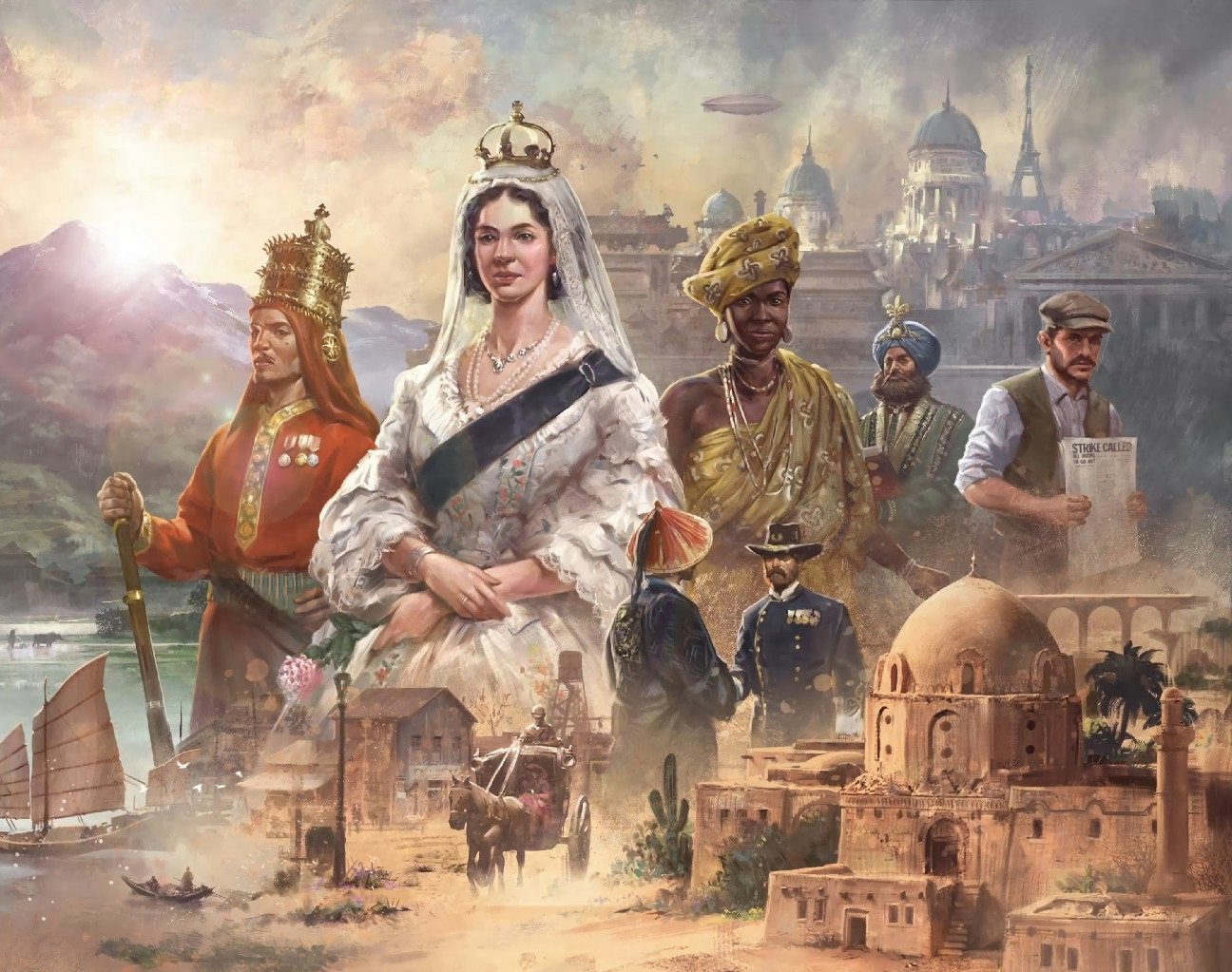
France is the world’s leading producer of fine art and explosives.
The odd combination exemplifies my 19th-century nation, where I’ve built an advanced, egalitarian society at the expense of my overseas colonies. Sure, I’ve had to suppress a few uprisings to keep the tea and bananas flowing, but where do you think the money for my robust public education, healthcare, and welfare programs comes from?
I could probably afford them by instead stripping down my Grande Armée, but this is a world where radical Finns are trying to topple the Russian Tsar, disgruntled peasants have set the British East India Company aflame, and a grumpy Prussia sits on my doorstep. Better not risk it.
For now, my laws will consider French culture superior to the colonies. But I swear I’ll embrace multiculturalism someday, as soon as I can get the Industrialists and Petite Bourgeoisie to agree to it. It’s been just another day in Victoria 3, the latest grand strategy game from Paradox Interactive, which builds a solid foundation for future expansion, albeit with a few frustrations.
Your Place in the Sun
Each of Paradox’s titles explores history from a different perspective: Crusader Kings III tells the story of noble medieval families, where the individuals are more important than the lands they rule. Stellaris puts individuals in the backseat to examine futuristic empires that decide the fictional fate of billions. Victoria 3, which opens in 1836 and closes a century later, focuses on people as a collective — the people who make up empires, or dream of being free of them.
Those folks are divided into populations like farmers and aristocrats, groups like the Catholic Church and Intelligentsia, and political parties like the Whigs and the Republicans. Keeping all (or at least most) of these collectives happy is the key to running a serene country. You are not a god, and it’s difficult to pass laws that major interest groups oppose. Irritate too many people, and you’ll create Radicals who work toward revolution.
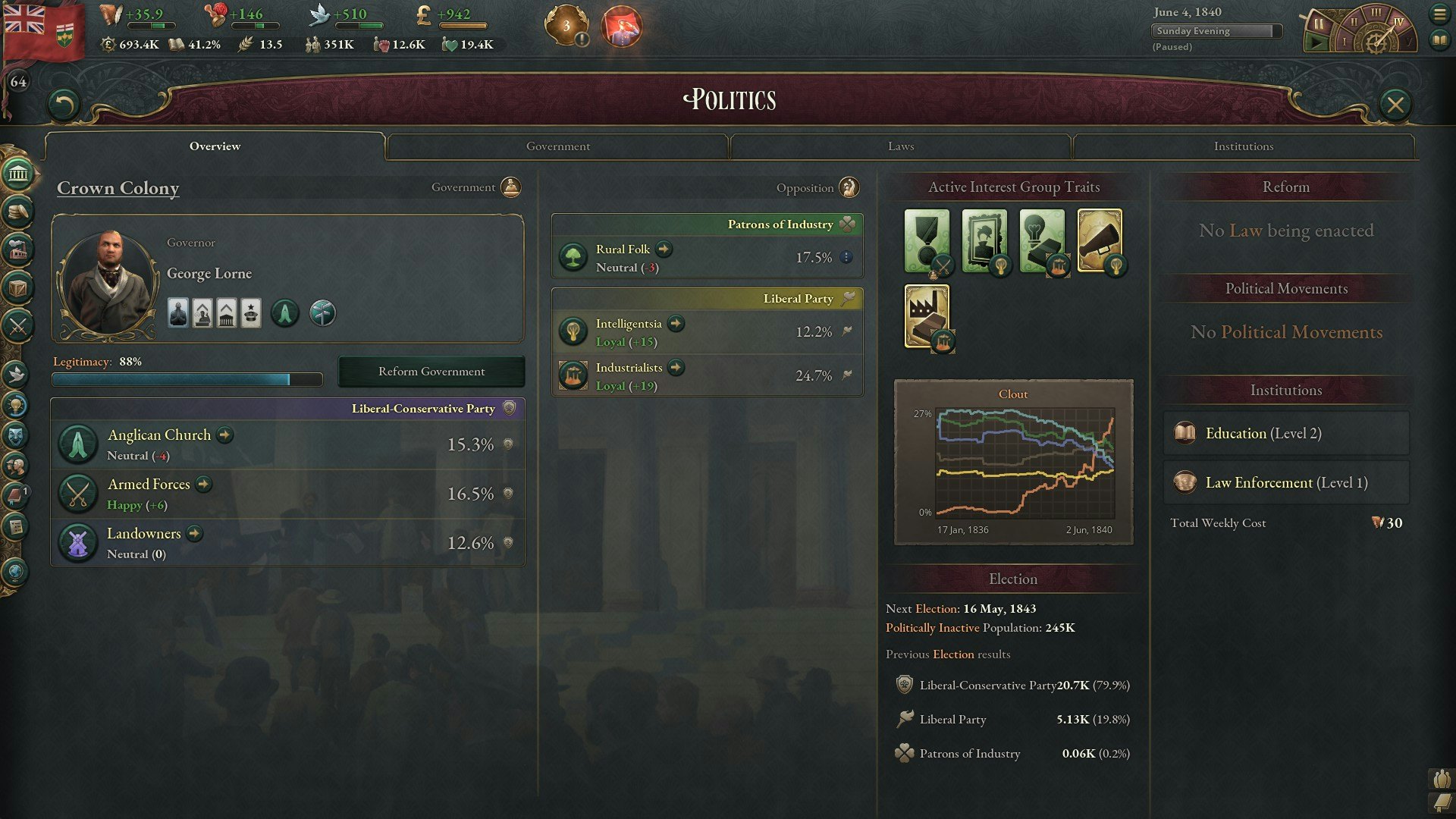
Interests soon bump into each other. While a new technology might let your factories employ efficient machinists, it will also put unskilled laborers out of work, forcing you to either find them another gig or carve out some budget for welfare. Meanwhile, you can establish colonies (or resist colonizers) while working or warring with other countries, all while society begins to entertain once unthinkable ideas like women’s suffrage and universal education.
Individually, politics and economics in Victoria 3 both feel undercooked. You can’t interact with domestic politicians, and foreign policy also offers few options. It’s satisfying to build a powerhouse economy, but the intricacies of the production chain feel too abstract. Trade, in particular, feels like micromanagement rather than strategy, with little to do beyond select the most profitable routes and occasionally tweak them when you’re told the market has changed.
Taken as a whole, however, balancing domestic affairs with overseas expeditions is a satisfying juggling act that forces you to think ahead. The only goals are those you invent for your chosen nation, although achievements provide some suggestions to overwhelmed neophytes. (Notable challenges include fulfilling the dream of the Paris Communards or leading the Sikh Empire to subjugate Great Britain.) Victoria 3 also recommends three general goals: Economic dominance, political hegemony, or the creation of an egalitarian society. These are fun to pursue, but you’re free to ignore them in an attempt to bring a peaceful end to American slavery or turn Luxembourg into a repressive police state.
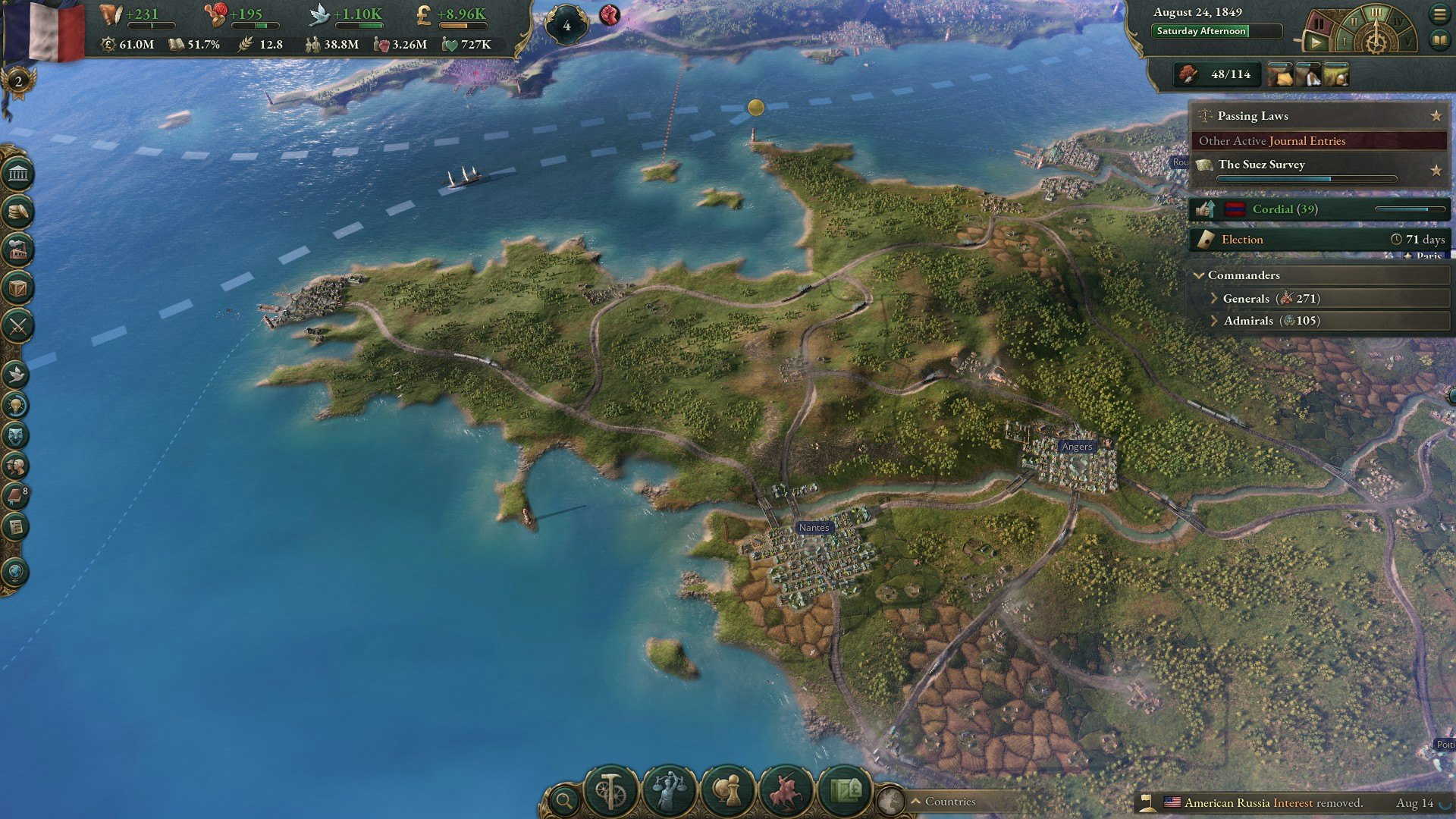
The Advent of Realism
No one plays strategy games for the graphics, but you do want the map screen you’re going to look at for hundreds of hours to have some appeal, and in that respect Victoria 3 is the prettiest Paradox game yet. Chugging trains blast steam, clouds drift over forests, ships creak as you skim the sun-dappled water. If you zoom out, you’ll hear the scrape of pens and the crackle of a fireplace, immersing you in the halls of power you’re supposed to imagine yourself working from. The only exception is the battles, where solitary cannons fire at nothing. Maybe they’re bugged, or maybe they’re just bad.
A user interface can also make or break a strategy game, and Victoria 3’s mostly makes it. The UI is clean, and largely free of the clutter that can plague the genre. Some crucial political and economic information could be easier to dig up, and a few menus emphasize style over substance — the trade menu, for example, is accompanied by pretty pictures of all the items flowing in and out of your nation, which is charming until you realize the icons are in the way of having a simple list of all your trade routes.
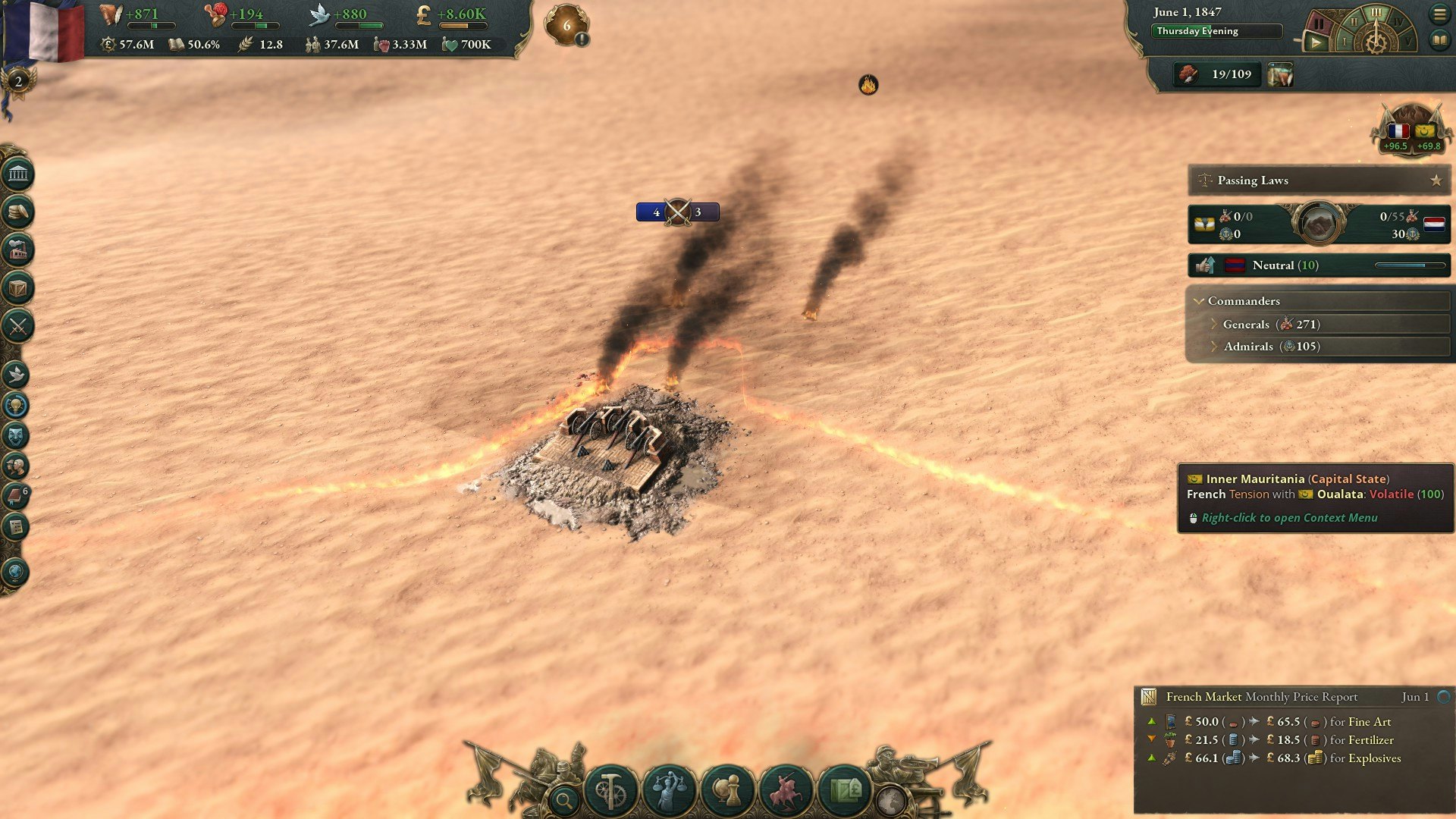
The biggest offender is the octopian technology tree, which is so bad I started choosing random techs to research rather than pick through it. Maybe it looks nicer on larger monitors, but on my gaming laptop it’s a cramped mess that wastes reams of space in its attempt to look unique.
Paradox tries not to overwhelm you with information, but there are some moments where more clarity would be nice. AI-proposed trade deals offer no indication of how they’ll impact your economy, and when I was playing as Belgium, France and Prussia were warring on my doorstep, and I had no idea why. Then again, I might have just misunderstood something, because…
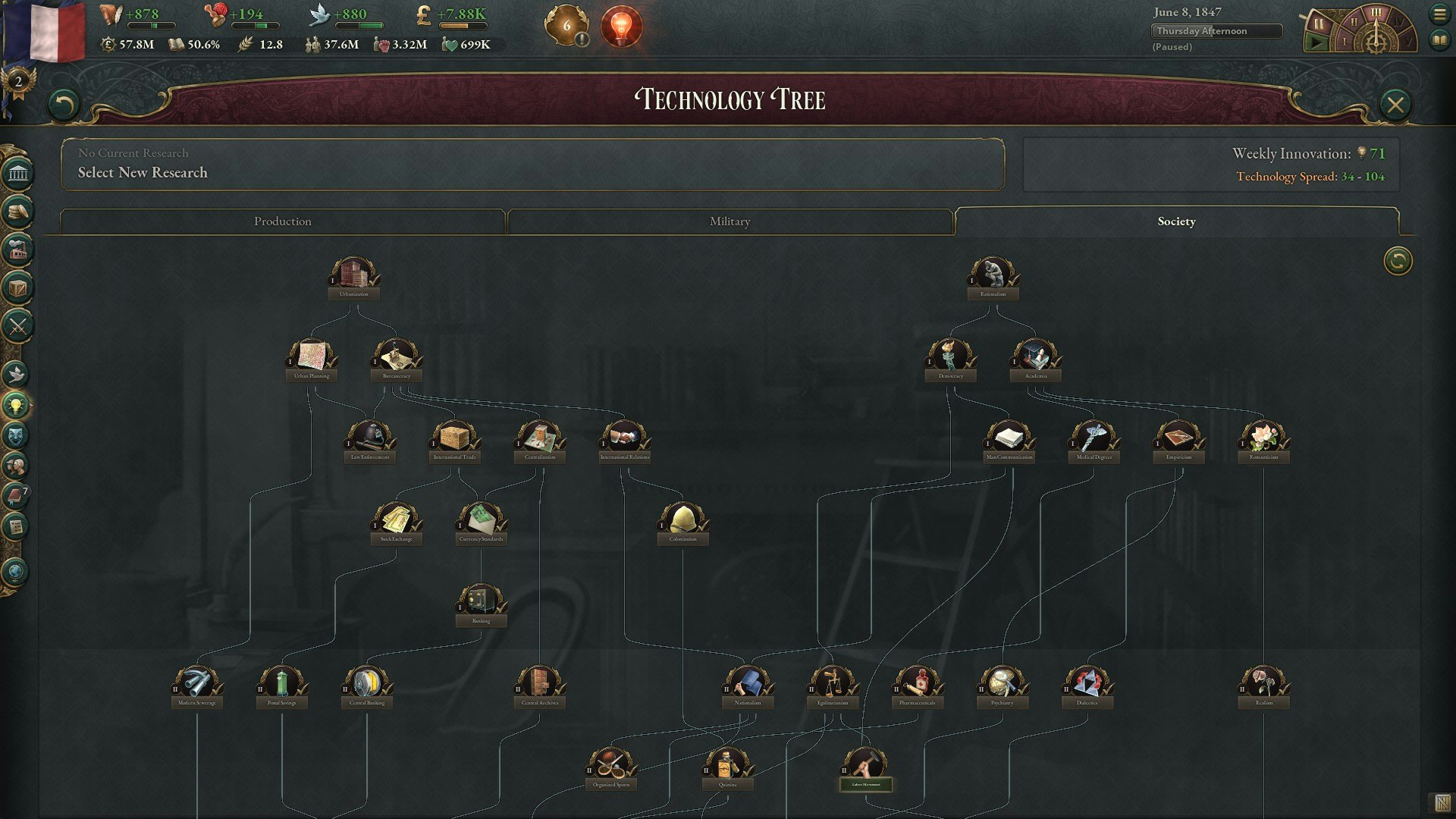
The Present and the Future
Reviewing a Paradox game is arguably an exercise in futility. It can take dozens of hours to master the basics, and years of added content still to come will eventually render them fundamentally different. The launch of a Paradox game is like the creation of a base camp, and a solid one has been built here. But if their games are famous for their scope, they’re also infamous for turning those who manage to grasp them into addicts. Maybe Paradox took the addiction jokes too seriously, because Victoria 3’s tutorial is meandering and frustrating. They said they didn’t want players to feel “railroaded” into a specific starting nation, but they should have taken note of the train that dominates Victoria 3’s cover art.
The tutorial tells you to pass a law, for example, but you aren’t given the law’s requisite technology, forcing you to find it and then sit around while you wait for it to research. What if a new player can’t identify and solve the problem? Later, you’re told to improve your relationship with another country, but that country was busy damaging relationships with me, leaving us at a standstill until I discovered I could also throw piles of money at them.
These obstacles are hardly insurmountable, but they make for a shaky onboarding, especially since the tutorial doesn’t proceed in a terribly logical order. Several of its stages amounted to “Play the game well, and then maybe we’ll tell you how the military works!” One of the four tutorial nations, the Cape Colony, even dumps you into a failing economy, then gets confused and stops giving you tasks, leaving you to twiddle your thumbs until your nation collapses.
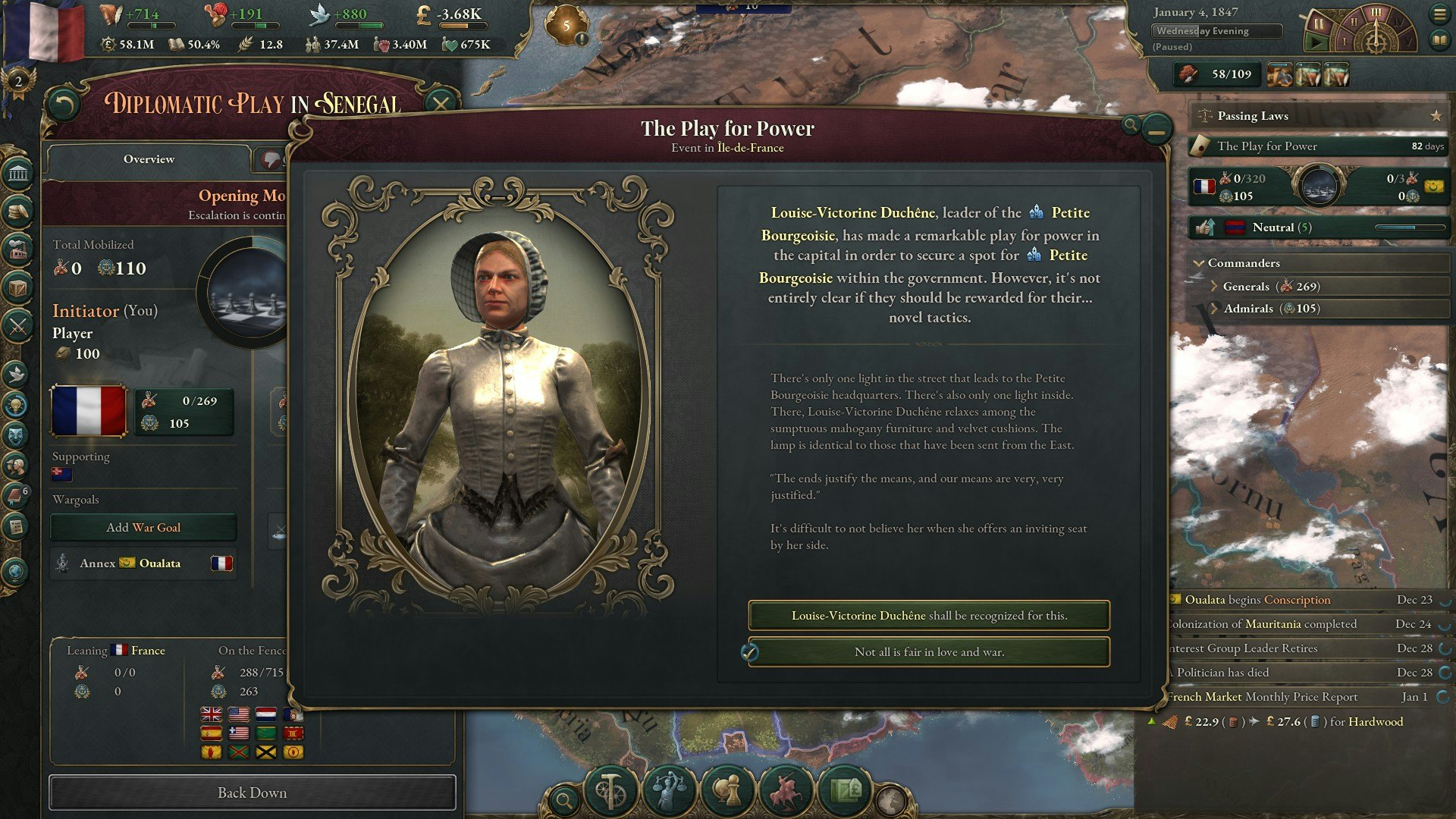
In Paradox’s defense, the tutorial and UI already received a round of upgrades during the review period, and more refinements are likely imminent. That’s their whole shtick these days; get a game out the door, then build with DLC that’s both praised for its depth and critiqued for its cost. There’s certainly room for growth: Events, the little pop-up stories meant to throw spanners into your careful plans, are vague, repetitive, and never seem to involve other nations, leaving my Belle Époque feeling a bit lonely.
So will Victoria 3 end up like Stellaris, which released to middling reviews but received years of updates that transformed it into a sublime experience? Or will it suffer the fate of Imperator: Rome, which launched in 2019 but had its support cut last year, leaving the game functional but tantalizingly unfinished?
There are no shortage of directions for Victoria 3 to go in, but whether it fulfills its own economic goals remains unknown. I wasn’t always satisfied with it, but I am rooting for it.
7/10
Victoria 3 is a Steam exclusive, available on October 25.
INVERSE VIDEO GAME REVIEW ETHOS: Every Inverse video game review answers two questions: Is this game worth your time? Are you getting what you pay for? We have no tolerance for endless fetch quests, clunky mechanics, or bugs that dilute the experience. We care deeply about a game’s design, world-building, character arcs, and storytelling come together. Inverse will never punch down, but we aren’t afraid to punch up. We love magic and science-fiction in equal measure, and as much as we love experiencing rich stories and worlds through games, we won’t ignore the real-world context in which those games are made.







